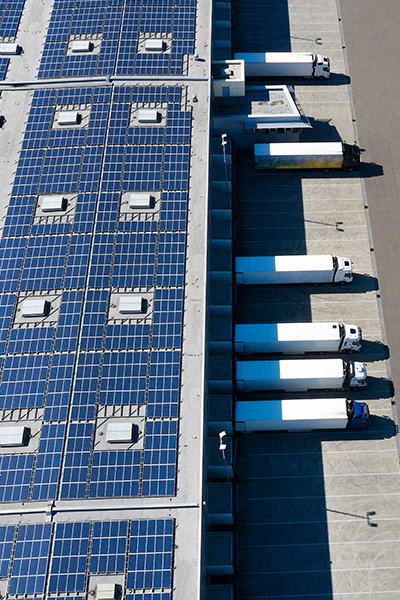
Solar PV
Switching to a clean energy supply forms an essential part of every net zero strategy – and solar PV (short for photovoltaic) is a cost-effective option for businesses considering self-generation.
Solar PV converts the power of the sun into electricity. It can be used directly onsite to power business operations, or combined with a battery storage system for use when grid prices or high, or to provide a back-up for critical processes. It can also be exported back to the grid for an additional income.
There is a particular opportunity to install solar PV panels on large commercial roofs – putting unused space to good use. They can also be incorporated within (rather than on top of) the walls and roofs of a building.
Benefits of Solar PV:


Budget certainty: protection from unpredictable grid energy prices

Lower energy bills: solar PV reduces the amount of electricity needed from the grid, and stored energy can be used when peak demand prices are high

Revenue: you can also get paid for excess electricity that you export, via the Smart Export Guarantee








